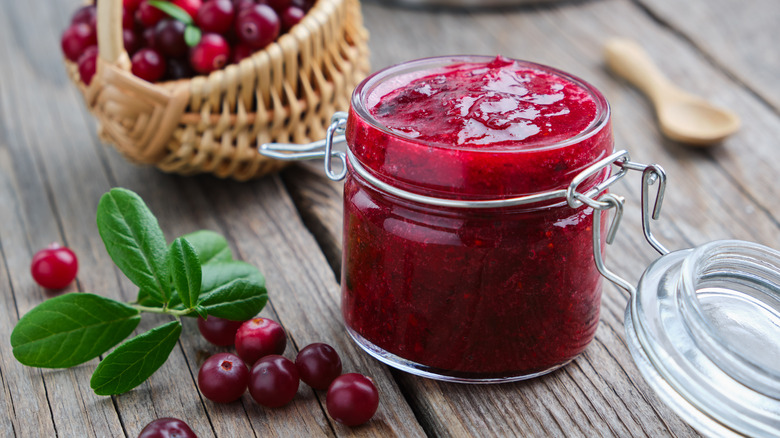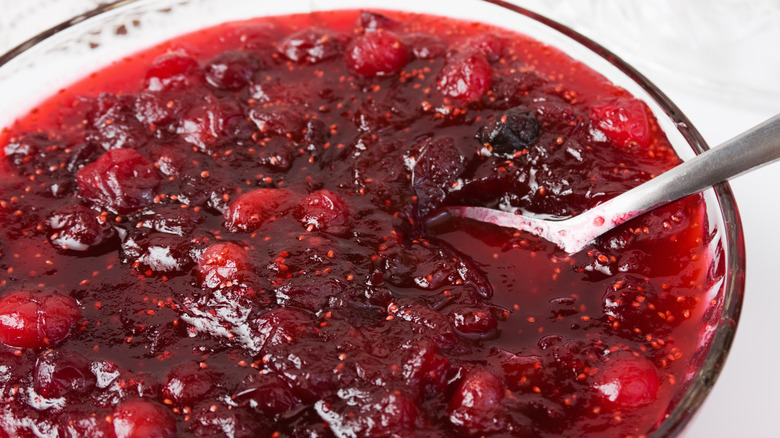How To Transform Canned Cranberry Sauce Into A Sweet Meat Marinade
A good, simple marinade needs a few key things: Flavor in the form of aromatics and seasonings, oil or another fat to bind things together, and, above all else, acidity. Acidity is essential when it comes to a good marinade, as this is the crux of what softens the meat and allows the flavor to seep into the cut you're preparing to cook. Most marinades utilize citrus flavors such as lemon, lime, and orange, but other acidic fruits and juices can be used as well, such as kiwi, for instance. Around the holidays, a great fruit to turn to is cranberries, which impart that necessary tartness as well as a classic wintery flavor profile.
Cranberry marinade can work with any meat, but its tartness pairs particularly well with chicken and pork. You can either use a can of cranberry sauce from the store or blend up your own cranberries, but be sure to use cranberries that have been broken down and processed into a paste or a sauce so the fruit's juices are released. Let your meat marinate for a few hours or overnight, then get ready for a tart and tender meal.
Why cranberry sauce makes for a great marinade
Cranberries are a versatile fruit and can be used in many different applications. They're great for marinades due to their acidity, but how does that acidity impact the meat? While acidity can't completely soften a tough cut of meat, it can certainly help impart more flavor. The acid in citrus, vinegar, and other tart fruit juices denatures the protein in meat and creates openings where the marinade can soak in, infusing the meat cuts with more flavor from the outside in. The longer the meat sits in the marinade, the longer that flavor has time to infuse; just don't let the meat sit for too long, or the soak can have the opposite effect, causing chewiness to develop.
Cranberry sauce is a great ingredient for marinade recipes because not only does it have acid, but it already has plenty of sugar in it, which is essential for balancing out that immense tartness of cranberry juice. If you plan to use straight blended cranberries, try adding in a little sugar by way of honey or brown sugar to temper the acidity.
Extra flavorings round out a perfect marinade
A marinade requires flavor in addition to acidity, and while the puckery taste of cranberries is certainly already strong, adding some seasonings will create a more well-rounded soak for your chosen meats. You can lean into the sweetness and holiday theming of your cranberry marinade and go with some traditionally sweet-leaning spices such as cloves and cinnamon. Fresh herbs such as rosemary or thyme also complement cranberry flavors, as these garnishes are often used in holiday dishes alongside the fruit.
If you want still more balance to the sweet and tart flavor of the cranberries, adding some red wine to your marinade is a good way to offset the strength of the sour and sugar. Alcohol also denatures proteins much like acidic foods do, so this addition will help soften your meat still further, leading to a perfectly delicious and mouthwateringly tender finished product.


